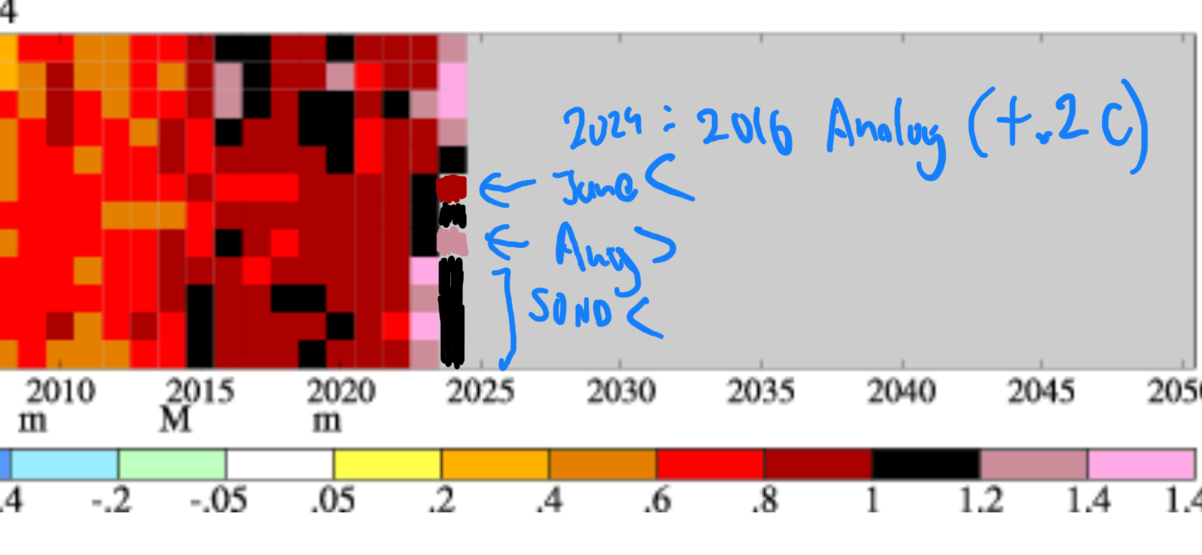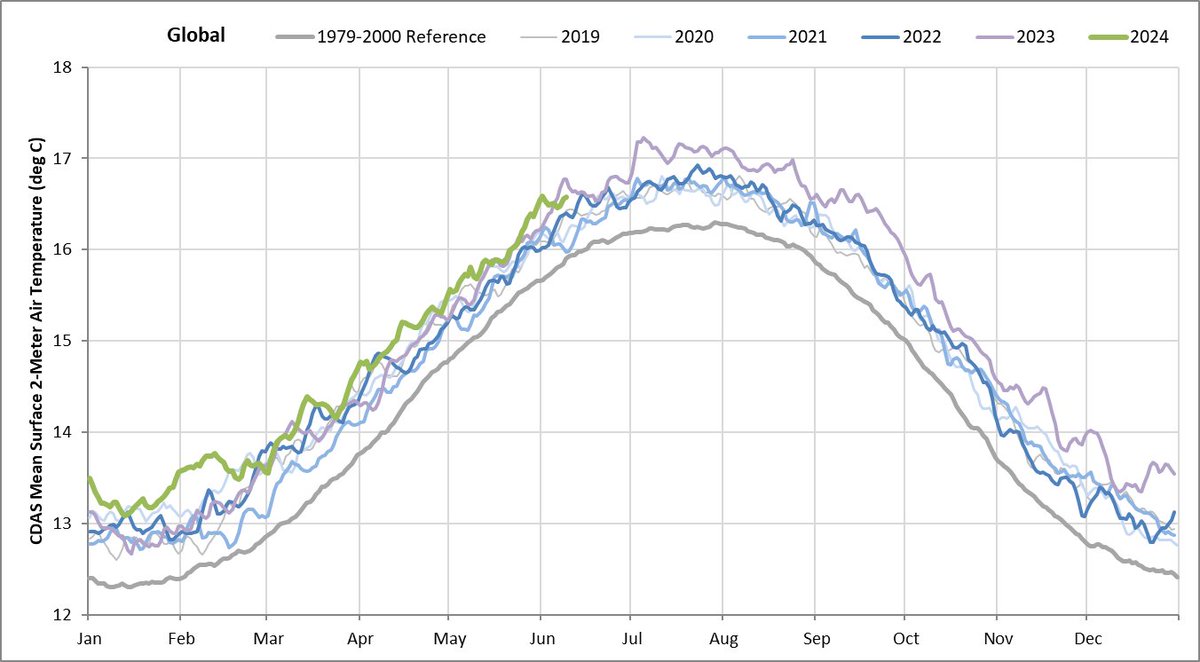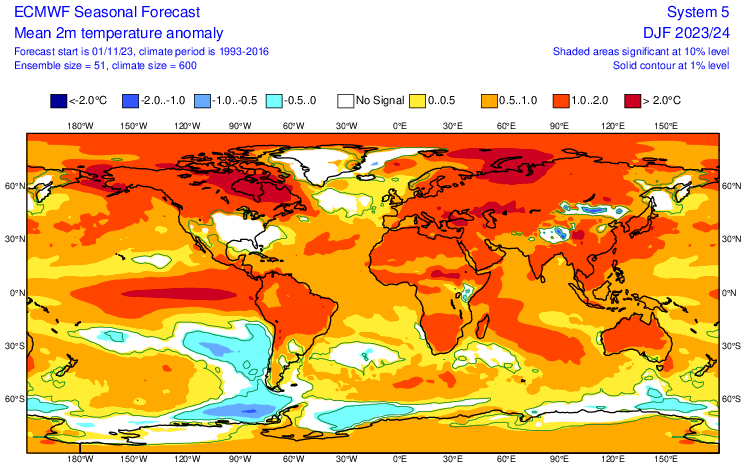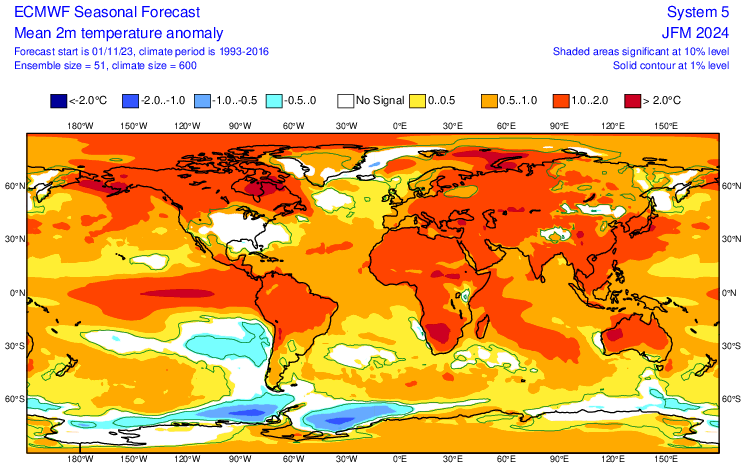Resolution algorithm:
At the end of January 2025, consider the most recently published monthly global temperature anomaly data from NASA, in the Land+Ocean column here, or else wherever they publish data with the same meaning. (It has to be a list of numbers; a sentence in an article saying that a month had a record anomaly does not count.)
If any number for one of the months in 2024 is strictly higher than all the numbers for the months before 2024, the market resolves YES. Otherwise, it resolves NO. If NASA has not published the relevant data by the end of January 2025, it resolves N/A instead.
I may trade in this market.
Edit 11/8: The anomaly has to be higher than the anomaly of every past month, not just the same month of every past year. For example, if the anomaly for July 2024 is higher than the anomaly for every past July, that is not enough for a YES resolution: it also has to be higher than the anomaly for every past January, February, and so on.
https://mailchi.mp/caa/the-world-will-cool-off-a-bit-and-other-good-news
"The string of record or near-record monthly temperatures in 2023-24 will be one month shorter (15 months) because September 2024 will surely be cooler than the unusually hot September 2023 (described by Zeke Hausfather as “gobsmackingly bananas” hot). [July and August 2024 might be slightly cooler than the same months in 2023, but the temperatures should not differ much, given the thermal inertia of the ocean mixed layer. Only in September 2024 do we expect to see a perceptible decline in the 12-month running mean global temperature.]"
Rough guesswork using 2016 as a nearby analog (assuming start of La Niña at latest by August and being neutral now relative to the El Nino start year) and filling in rest of year from June afterwards by just shifting over the bins by 1 color (https://www.columbia.edu/~mhs119/Temperature/T_moreFigs/Tvs.year+month.png)

https://x.com/oz4caster/status/1800154543982088336

It has finally started to dip a bit already compared to last year’s June.




